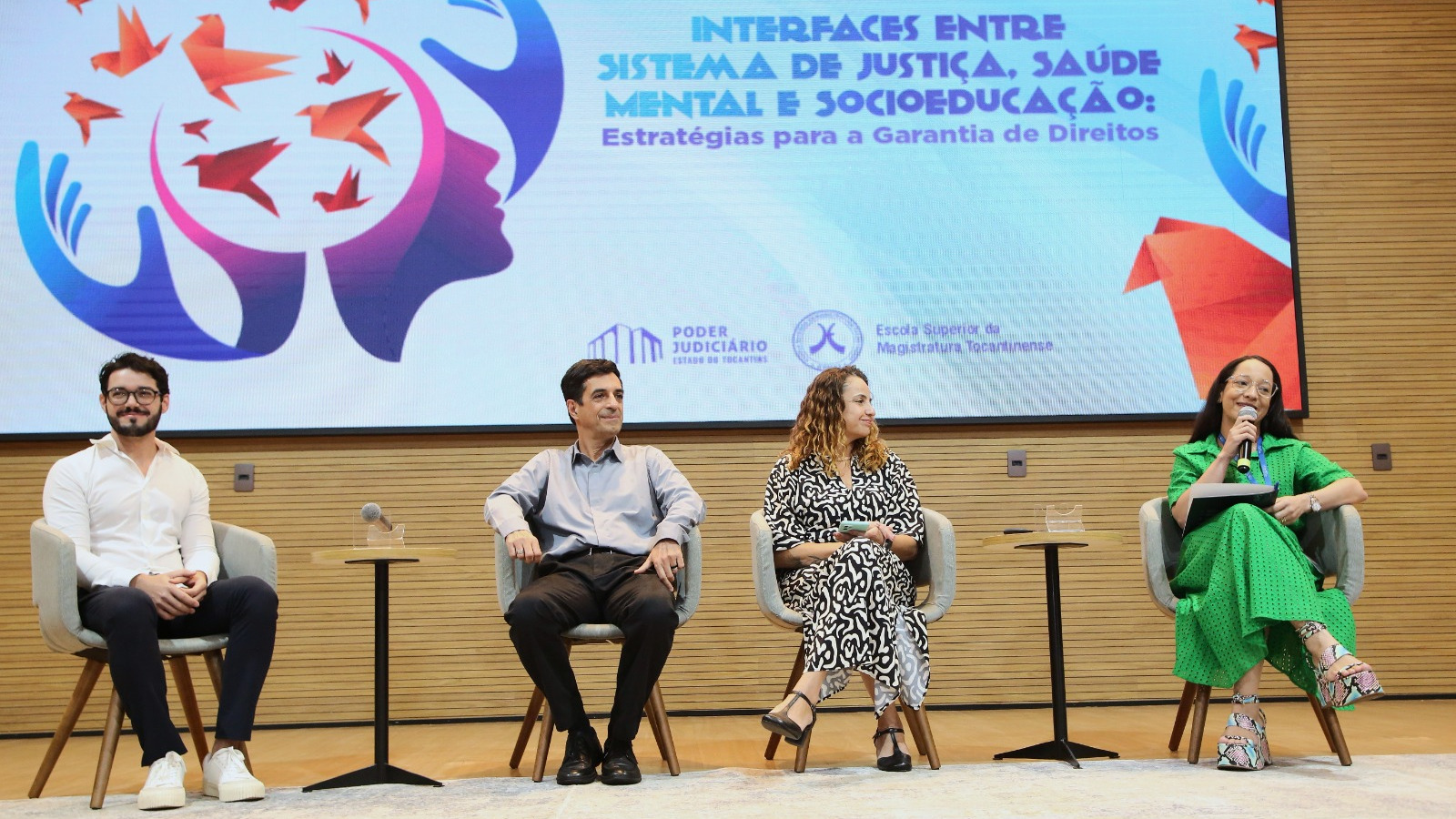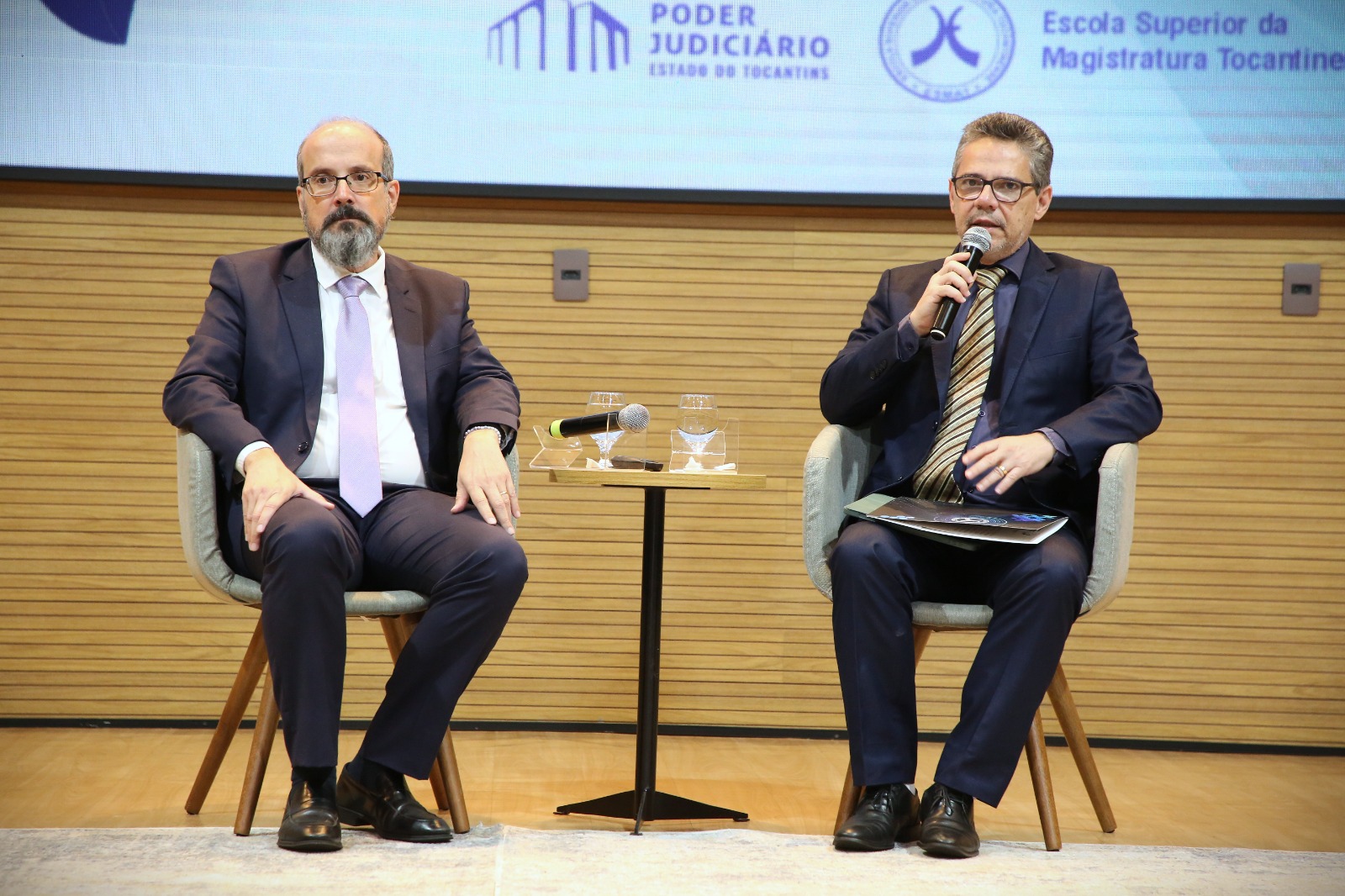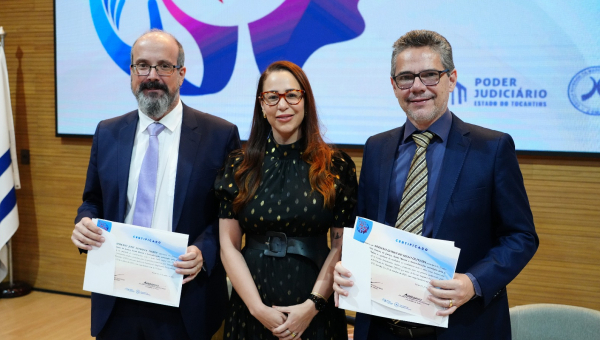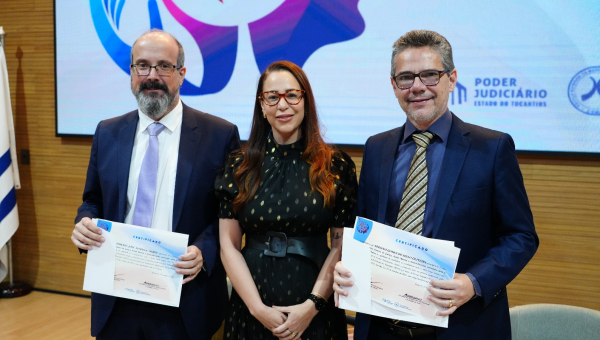
“It takes an entire village to raise a child." The phrase, attributed to the African ancestral wisdom, crosses time and borders to remind us that care is a collective and deeply human act. Caring for a child or adolescent is not a task restricted to the family, the State or an institution. It is the task of all. And more than a task, it is an ethical and political commitment.
During the two days (October 22nd and 23th) of programming in the auditorium of the Court of Justice of the State of Tocantins (TJTO), the event on "Interfaces among Justice System, Mental Health and Socio-Education", organized by the Superior School of the Judges of the State of Tocantins (Esmat), not only promoted dialogues, but also built links, networks and meanings. Brought to light stories of adolescents, institutional challenges, tensions between control and care. And, above all, reaffirmed that the uniqueness of adolescence needs to be recognized. There are no generic solutions for subjects crossed by inequalities, traumas and historical invisibility. There is, yes, the possibility of listening, ethics and affection.
Closing
On Thursday afternoon, the Thematic Table 5 dealt with the National Policy of Comprehensive Health Care for Adolescents in Conflict with the Law (PNAISARI), a policy still somewhat known to those who do not work directly in the area, but essential to ensure the completeness of care for adolescents in hospitalization, provisional hospitalization or semi liberty.
The speaker Caroline Maria Arantes de Morais, from the Ministry of Health, highlighted how intersectoriality has been gaining space in the execution of this policy.
“These spaces of dialogue are always very important. We have observed that the PNAISARI has become very close to the Justice System, and this articulation is essential for the policy to be effective. An alignment is needed among the expectations of the various sectors", she said.
Caroline also spoke about the action of the Access and Equity Coordination - Saps -, especially focused on promoting strategies that respect diversity and social vulnerability, seeking to transform equity in health into concrete practice, not rhetoric.
The speaker Fernando Libânio, from the Municipal Health Department of the city of Belo Horizonte, brought a didactic speech about puberty and adolescence, addressing the multiple adolescence, social markers and rites of passage, which, according to him are symbolic moments that allow young people to recognize themselves as part of a larger social body.
Israel Tainan Lima e Chaves, also from the Health Department of the city of BH, presented a report on their practical experience in the clinic with adolescents in conflict with the law. He stated that the performance is not based on fixed protocols, but on the constant ability to "reinvent ways of”.
“Health is not an imposition. It is an ethical offer of care," he said.
The mediation of the Board was made by Tamyze Bezerra Gomes, from the Monitoring and Supervision Group of the Prison System and Socio-educational Measures of the TJTO (GMF), which reinforced the importance of thinking about care beyond institutional structures.
A conference that closes the event and opens paths

At the closing conference, Judge Afrânio José Fonseca Nardy of the Court for Children and Youth of the city of Belo Horizonte provoked the audience with a sensitive and affective speech about care as a foundational element of socio-education. "When we are called in moments like this, we need to make an effort to speak on the shoulder of giants (...) I believe in a pedagogy in which all are at the same time teachers and learners," he began.
Speaking about health in the socio-educational context, he highlighted that it is necessary to go beyond the biomedical model and embrace the perspective of the expanded clinic, a concept already consolidated in the Brazilian public health.
“It is not just about curing a disease or improving indicators. The center is the production of care. And this care can only be built on the basis of affections", he pointed out.
The conference was mediated by Judge Adriano Gomes de Melo Oliveira, coordinator of Childhood and Youth at the TJTO, who warned about the concrete challenges of the public policy and the urgent need for resources and institutional continuity.
“Unfortunately, the drawing is not beautiful. There are difficulties, but we could be doing better. We need real commitment, that goes beyond the paper," he said.
Reflections Of The Event In Listening To The Participants
Intersectoriality was one of the strong axes of the event. Health, Justice, Assistance, Education do not walk in isolation. And more than reflecting on existing challenges, the event proposed ways. The impact of the debates could also be measured by the emotional testimonies of those who participated in the programming:
Fabiane da Silva Gomes, secretary of the Forum of Porto Nacional, was moved to hear Judge Afrânio dedicate his final words to adolescents in compliance with measures.
“It was as if he said that these young people are being seen, that they have not been forgotten and are not invisible. This reflection also broadens our view on the subject. The event provided a deeply humanized approach to social education, rights and mental health", she shared.
In a testimony, Ana Luiza Fragoso, a psychology student at Uninassau, reinforced the importance of intersectoral articulation and the contribution of the event to her future as a professional. "Attending the event was a very enriching experience. The content was extremely useful, especially for bringing reflections on intersectoral work and the importance of articulation among Justice, Health and Socio-Education. It certainly contributed to broaden my understanding of the subject and strengthen my future professional performance", she commented.
The Social Worker Ângela Moreira Carneiro Jucie, who works at the Specialized Reference Center of Social Assistance (Creas) in the city of Gurupi, highlighted how the contents discussed dialogue with the concrete challenges of their daily professional life. According to her, the debates and reflections of the event brought important subsidies to qualify institutional practices and strengthen actions aimed at adolescents in a situation of vulnerability:
“The addressed theme has contributed directly to the improvement of public policies that we developed in the equipment in which I work with adolescents in compliance with measures", reported.
Throughout the entire programming, composed of Thematic Tables, Conferences and qualified listening moments, the initiative validated the urgency of thinking public policies from the complexity of the lives that cross the Justice System.
In the assessment of the event coordinator, Judge José Eustáquio de Melo Júnior, the collective effort represented by programming points to a path of strengthening public policies and intersectoral action.
"We brought together representatives of the Justice System, the Mental Health Network and the Socio-Educational System to build bridges, not walls among these areas. The proposal was to reflect on practices, challenges and joint solutions so that care, accountability and social protection can walk side by side. In a context where social vulnerabilities and mental health issues increasingly cross the daily life of Justice institutions, it becomes essential to strengthen intersectoral and humanized strategies. Our goal is precisely to foster this integration, ensuring that each person, especially those in a more fragile situation, has access to listening, appropriate treatment and Justice in its broadest form: the Justice that cares, welcomes and transforms", ratified.
They were two days of plural and provocative sharing, which brought contributions from Health, Education, Assistance and Justice. The symbolic signature of the Joint Ordinance no 12, of 2025, which establishes an Inter-institutional Working Group focused on the construction of strategies for mental health care in the socio-educational system, represented an institutional milestone of this collective journey. More than a closure, the gesture signals a commitment to the continuity of dialogue, articulation and, especially, listening and transformative action.




_thumbnail_thumbnail.jpeg)
_thumbnail_thumbnail.jpeg)
_thumbnail_thumbnail.jpeg)
_thumbnail_thumbnail.jpeg)
_thumbnail_thumbnail.jpeg)

_thumbnail.jpeg)
_thumbnail.jpeg)
_thumbnail.jpeg)
_thumbnail.jpeg)
_thumbnail.jpeg)

